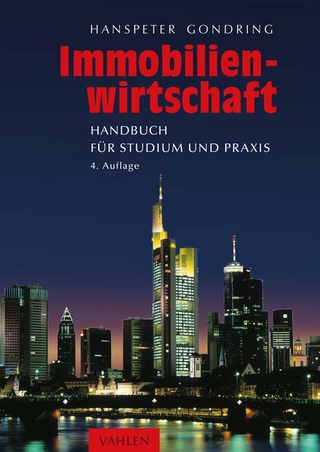
Beginner's Guide to Public Housing Conversion Under Rad
Seiten
2015
American Bar Association (Verlag)
978-1-62722-749-0 (ISBN)
American Bar Association (Verlag)
978-1-62722-749-0 (ISBN)
RAD, as a demonstration program, is an evolving program. This guide provides an overview of the rules and procedures that are currently in place in relation to the conversion of public housing units to Section 8 assistance.
The U.S. Department of Housing and Urban Development (HUD) initiated the Rental Assistance Demonstration (RAD) as a means of preserving affordable housing and infusing capital funds to address a growing backlog of capital needs among the nation's public housing and Section 8 Moderate Rehabilitation (Mod Rehab) properties. While Congress authorized RAD in 2011 as part of the Consolidated and Further Continuing Appropriations Act of 2012, RAD does not involve the appropriation of any additional federal funds. Rather, it relies on existing funding levels by shifting funds provided to up to 60,000 former public housing units and Mod Rehab units to funding provided under Section 8 of the U.S. Housing Act of 1937 (Housing Act) and identifying those funds within future HUD appropriations budgets as either project-based "Tenant-Based Rental Assistance" (i.e., PBV) or "Project-Based Rental Assistance" (i.e., PBRA).
By removing these units from the public housing statutory and regulatory framework, owners of these units, once converted, are able to leverage the Section 8 assistance against other financing tools and generate the capital needed to make repairs or to develop new replacement units. The RAD units under the Section 8 paradigm function more like private housing with greater access to financing resources and fewer regulatory limitations. RAD is an evolving program. Beginner's Guide to Public Housing Conversion under RAD will provide an overview of the rules and procedures that are currently in place in relation to the conversion of public housing units to Section 8 assistance.
The U.S. Department of Housing and Urban Development (HUD) initiated the Rental Assistance Demonstration (RAD) as a means of preserving affordable housing and infusing capital funds to address a growing backlog of capital needs among the nation's public housing and Section 8 Moderate Rehabilitation (Mod Rehab) properties. While Congress authorized RAD in 2011 as part of the Consolidated and Further Continuing Appropriations Act of 2012, RAD does not involve the appropriation of any additional federal funds. Rather, it relies on existing funding levels by shifting funds provided to up to 60,000 former public housing units and Mod Rehab units to funding provided under Section 8 of the U.S. Housing Act of 1937 (Housing Act) and identifying those funds within future HUD appropriations budgets as either project-based "Tenant-Based Rental Assistance" (i.e., PBV) or "Project-Based Rental Assistance" (i.e., PBRA).
By removing these units from the public housing statutory and regulatory framework, owners of these units, once converted, are able to leverage the Section 8 assistance against other financing tools and generate the capital needed to make repairs or to develop new replacement units. The RAD units under the Section 8 paradigm function more like private housing with greater access to financing resources and fewer regulatory limitations. RAD is an evolving program. Beginner's Guide to Public Housing Conversion under RAD will provide an overview of the rules and procedures that are currently in place in relation to the conversion of public housing units to Section 8 assistance.
Amy M. McClain, of Baltimore, MD, represents public housing authorities and affordable housing developers in the context of mixed-finance transactions. Ms. McClain has closed several affordable housing transactions involving a variety of funding sources, including Low Income Housing Tax Credits, HOPE VI, tax-exempt bonds, state housing finance agency loan funds, and conventional financing. These transactions have provided her with the opportunity to negotiate issues with and finalize evidentiary submissions to the U.S. Department of Housing and Urban Development, in addition to addressing traditional real estate issues intertwined with low-income housing development.
| Erscheint lt. Verlag | 7.6.2015 |
|---|---|
| Verlagsort | Chicago, IL |
| Sprache | englisch |
| Maße | 152 x 227 mm |
| Gewicht | 104 g |
| Themenwelt | Recht / Steuern ► EU / Internationales Recht |
| Recht / Steuern ► Privatrecht / Bürgerliches Recht ► Sachenrecht | |
| Wirtschaft ► Betriebswirtschaft / Management ► Rechnungswesen / Bilanzen | |
| Betriebswirtschaft / Management ► Spezielle Betriebswirtschaftslehre ► Immobilienwirtschaft | |
| ISBN-10 | 1-62722-749-0 / 1627227490 |
| ISBN-13 | 978-1-62722-749-0 / 9781627227490 |
| Zustand | Neuware |
| Haben Sie eine Frage zum Produkt? |
Mehr entdecken
aus dem Bereich
aus dem Bereich
Handbuch für Studium und Praxis
Buch | Hardcover (2023)
Vahlen (Verlag)
79,00 €
Erfolgsstrategien für den modernen Immobilienmarkt
Buch | Softcover (2024)
ForwardVerlag
18,00 €
warum Rene Benkos Immobilienimperium zusammenbrach und was dem …
Buch | Hardcover (2024)
FinanzBuch Verlag
22,00 €


